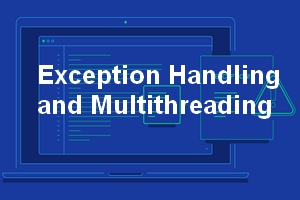
Choose Your Desired Option(s)
# Java Basic Notes: Your Complete Guide
## Introduction
Welcome to the definitive guide on **Java Basic Notes**! This page is designed to provide you with a thorough understanding of Java fundamentals, catering to both beginners and seasoned developers looking to refresh their knowledge. Dive into the essential concepts of Java, the popular object-oriented programming language that powers millions of applications worldwide.
## What is Java?
**Java** is a high-level, class-based, object-oriented programming language designed to have as few implementation dependencies as possible. It is widely used for building robust, secure, and scalable applications across various platforms.
### Key Features of Java
– **Platform Independence**: Write once, run anywhere (WORA) capability.
– **Object-Oriented**: Promotes modular and reusable code.
– **Secure**: Offers a range of security features to develop tamper-free systems.
– **Multithreaded**: Supports multithreading for better performance.
– **Rich API**: Extensive standard libraries for various needs.
## Java Basic Concepts
### 1. Variables and Data Types
Understanding variables and data types is fundamental in Java programming. Java supports several data types including:
– **Primitive Data Types**: byte, short, int, long, float, double, char, boolean.
– **Non-Primitive Data Types**: Strings, Arrays, Classes, Interfaces.
### 2. Control Flow Statements
Control the execution flow of your program using:
– **Conditional Statements**: if, if-else, switch.
– **Looping Statements**: for, while, do-while.
### 3. Object-Oriented Programming (OOP)
Java is an object-oriented language, emphasizing:
– **Classes and Objects**: Blueprint of objects and instances.
– **Inheritance**: Mechanism to acquire properties of another class.
– **Polymorphism**: Ability to process objects differently based on their data type.
– **Encapsulation**: Wrapping data and code into a single unit.
– **Abstraction**: Hiding complex implementations and showing only the necessary features.
### 4. Methods
Methods are blocks of code designed to perform specific tasks. Key concepts include:
– **Method Declaration**: Defining the method with a return type and parameters.
– **Method Invocation**: Calling the method to execute its block of code.
– **Overloading and Overriding**: Providing multiple methods with the same name but different parameters (overloading) or redefining a method in a subclass (overriding).
### 5. Arrays
Arrays store multiple values of the same type in a single variable. Understand:
– **Single-Dimensional Arrays**: A list of elements.
– **Multi-Dimensional Arrays**: Arrays of arrays, like matrices.
### 6. Exception Handling
Handle runtime errors gracefully using:
– **try-catch Blocks**: Enclose code that might throw an exception within a try block, followed by one or more catch blocks to handle exceptions.
– **Finally Block**: Executes code after try and catch blocks, regardless of whether an exception was thrown.
– **Throw and Throws**: Throw exceptions manually using the throw keyword, and declare exceptions using the throws keyword.
## Best Practices for Java Development
1. **Code Readability**: Write clear and readable code with proper naming conventions.
2. **Use Comments Wisely**: Add comments to explain complex logic but avoid over-commenting.
3. **Consistent Indentation**: Follow a consistent code indentation style.
4. **Effective Exception Handling**: Handle exceptions properly to avoid application crashes.
5. **Optimize Performance**: Use efficient data structures and algorithms to optimize performance.
## Conclusion
Mastering the basics of **Java** is essential for any aspiring developer. This comprehensive guide on Java Basic Notes provides a solid foundation to build upon. Whether you’re starting your programming journey or revisiting the basics, these notes will serve as a valuable resource.
## Additional Resources
– [Official Java Documentation](https://docs.oracle.com/en/java/)
– [Java Tutorials](https://www.javatpoint.com/java-tutorial)
– [Java Programming Cheatsheet](https://introcs.cs.princeton.edu/java/11cheatsheet/)
Keep this guide handy as you explore and deepen your understanding of Java. Happy coding!
Share Now!





